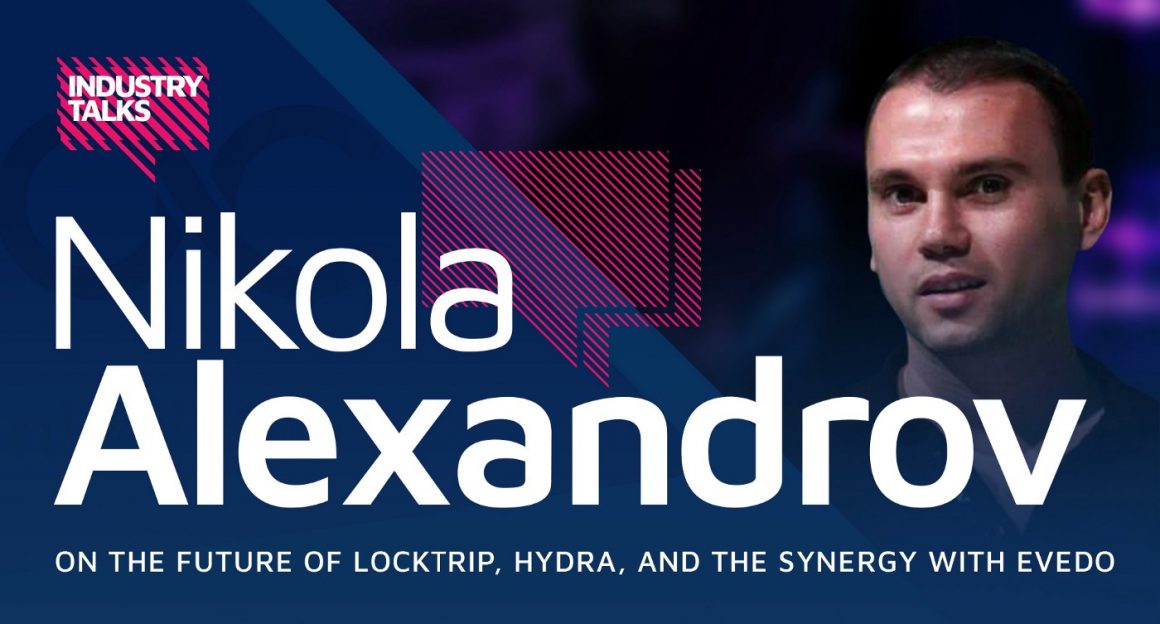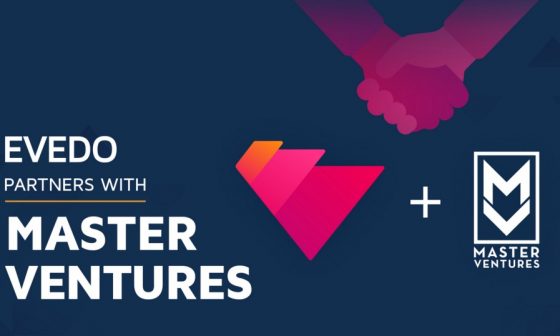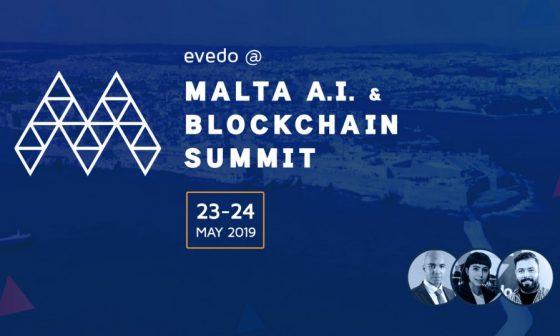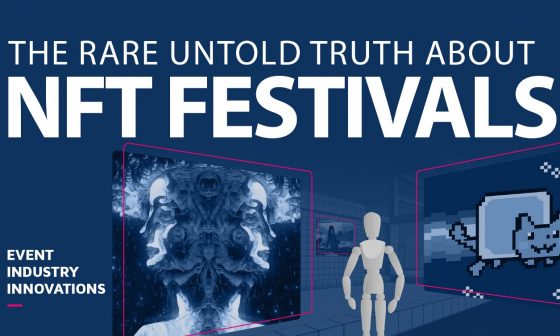This one is a long time coming! We at Evedo announced a partnership with LockTrip in October 2018, and today we are also working with their new blockchain Hydra which will improve our product tremendously. In today’s Industry Talks we are talking to Nikola Alexandrov, the CEO of LockTrip — a decentralized hotel booking and vacation rental marketplace.
Nikola is recognized as one of the most successful and interesting online entrepreneurs of his generation, and his competencies in blockchain, algorithmic trading, digital marketing, and online retailing is what has brought him here today. There’s so much we can learn from Nikola, and we wanted to capture and share this knowledge in today’s article.
Our thorough conversation provides the growing Evedo, LockTrip, and Hydra communities with an in-depth look at the ongoing collaboration, the specifics of it all, and the story behind the 3 innovative projects. Let’s dive right in!
1. Tell us a bit about the very beginning of Locktrip. How did everything start? What ignited the idea?
I co-founded a startup back in 2008 which was a travel price comparison project. It focused on cross integrating and mapping the databases of all Online Travel Agents (sites like Booking.com, Expedia.com, etc) back then. The goal was to compare the different prices in order to find the offer that had the lowest rate. It was technically a travel meta-search engine similar to how Trivago functions. Unfortunately, despite the idea being good, we ran into financial issues as the funding round coincided with the 2008 crisis and as a result, the project was discontinued.
Afterwards, I focused on my digital marketing business which took off really well. I went on to co-found the Bitcoin7 exchange in 2011 which came to be the 3rd largest on a global scale, second to Mt. Gox and Tradehill, according to traded volumes back in 2011. Despite the great development, we had a security incident and we decided to be open to the public about it. That led us to discontinue further operations as we wanted to avoid the same risk at a potentially much bigger scale. We announced a KYC process for funds recovery and restored all assets with the whole incident ending without any complications… Other than giving up on the business which looked very promising at the time.
A few years later it turned out our competitor who remained in the game and rose to fame, Mt. Gox, had multiple similar security incidents and its management decided to cover it up and continue operating with a running deficit on their balance sheet. We all know that ended with catastrophic legal issues.
Fast forward to 2017 and I guess the lessons I had learned from the ashes of these previous two projects. Combining that with my interest in algorithmic trading systems, which was my main focus at the time, put the foundation of what LockTrip and Hydra now are. Basically, I’ve combined the knowledge I gathered along the way from the travel industry distribution, blockchain, and financial markets liquidity, and the output was LockTrip.
It has been and still is an amazing learning experience for which I am extremely grateful.
2. What role does blockchain play in your business? And how does it make your business model so unorthodox, yet so appealing to consumers?
Blockchain is in the DNA of LockTrip, for several reasons.
Our long-term vision is to change the way data transmission works in the travel industry. This is now identified as the number one problem in the travel industry as it is slow, overly complex, expensive, and accompanied by a very high level of errors. The case is such mainly because of the overlapping redistribution which is completely asynchronous and to some degree chaotic. You may have 10 companies integrated with each other and each one applies an adaptive approach where it maps its custom database to the database of its peers. And as you add more hops to the system, the inefficiency grows exponentially.
For instance, if you imagine 5 companies connected in sequential order, you may end up having provider number 5 pulling data from provider number 2 even though it has already received the same data from provider number 4.
We had pivoted two iterations for decentralized inventory distribution which were both facing certain challenges in the design phase. Regardless of this, they showed us the path to a third and entirely new method which we believe has true potential to change the model. We will be releasing more information to the public very soon as we do feel it has the potential to lead to a big change!
Moreover, LockTrip and Hydra are all about the sharing economy. Blockchain enables any project to add a unique financial layer that is completely math-based and to some degree, protects retail community members. It adds a whole new level of transparency, granularity, and capacity to create a network effect among all actors at a very early stage. This fits perfectly with the concept of having a community-driven shared economy workforce. Without blockchain, this layer of our project would be much less efficient.
Lastly, using blockchain further reduces the costs for travel accommodation. In the world of travel, you have relatively high-value transactions with high velocity. This makes credit card fees, as well as chargeback and fraud costs, significantly impactful on the price of your stay. Our vision is to remove all middlemen and blockchain is the only tool that enables payments in addition to smart contract capabilities which are ideal for the traveler/host relationship scenarios.
For instance, a 3.4% average cost on credit cards (US customers/Stripe), in addition to an average 1% fraud cost could end up increasing the final price across the travel stay as nearly as ~5%. And since it is a relatively high-value transaction (e.g. stays can easily reach $500 and $1500 total per stay) that results in a $25 to $75 just for the payment fee. That makes little sense when it can be $0 instead!
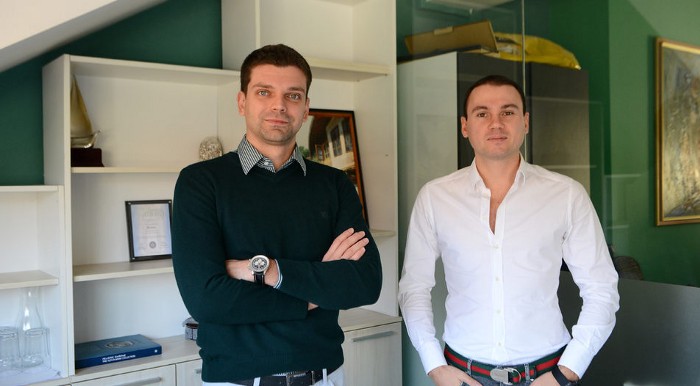
3. What are some of the most valuable lessons that the pandemic has given you, both professionally and personally?
The pandemic was, and for the most part of the world still is, a hard period for all. In my family, it was particularly difficult as I almost lost a family member who spent a considerable amount of time in the hospital. Lessons learned is there is an enormous amount of luck factored in our life and although this may sound superficial, the pandemic reminded me how many people take this individual luck for granted. Being young especially in a situation like this is an enormous luxury not everyone has, and still, we saw young protestors not caring about others. The pandemic for young people was an entirely different experience than it was for the elderly. It was really a multi-dimensional thing put under the same label. I was reminded of how different the world can be even to someone who is within a hand’s reach to you.
On the professional side of things, it was an opportunity to restructure the business and take advantage of new unique opportunities. Remaining lean, focused, and exploring new ideas while many others are in panic mode allowed us to level up in a way that surpassed most of our expectations. Of course, we were also predisposed to take advantage of these opportunities due to having sufficient financial resources to push through and stay afloat. It is important to emphasize that many other businesses didn’t have this capacity.
4. We announced a partnership between Evedo and LockTrip in October 2018 as we believe there is great synergy between us. Today we are working on collaborating not only with LockTrip but also with your blockchain called Hydra!
This migration is going to solve a lot of issues for our ticketing platform thanks to the technology you have developed. Can you share more about this ongoing collaboration and its goals?nounced
Hydra is a unique project because it was drafted based on actual usage and data of the best blockchains in 2017 and 2018. It aims for a sustainable economic environment that empowers app developers to scale their businesses without worrying about infrastructure. In addition, it unlocks an entirely new economic stream due to its 50% gas royalty protocol feature.
For instance, the moment EVED is migrated on top of Hydra, you will not only solve all scalability and network congestion (without sacrificing decentralization), but you will also start to receive 50% of all gas spent for EVED operations as passive income to the wallet that deployed the EVED HRC20 smart contract. These are just a few of the obvious reasons why the EVED-HYDRA partnership makes perfect sense!
In addition to those, of course, there’s also the history of trust between our teams. Stoyan (Evedo’s CEO) was part of the LockTrip crew and it’s needless to say we share the same cultural fit which makes any form of collaboration a much more efficient and productive feat.
Lastly, Hydra’s ecosystem has the potential to become a hub for meaningful, real-world application projects.
EVED being applicable to the entertainment industry, LOC to the accommodation, and as of recently, we also have one new project expanding in the food delivery business.
All projects have an actual use case, with actual and functional products and benefits improving the end-user experience.
Having a preference for projects with real-world applications built on top of Hydra is not a coincidence as it shows to some degree our strive as members of the ecosystem to focus on products that make a real, tangible difference and are functional.
5. How do you envision the future of the travel industry?
I think within a 5-year span there will be massive changes to the connectivity side of the industry. PMS, channel managers in particular who exist and dwell on the inefficiencies of the current industry, will need to adapt to survive.
I also think the market will undergo a radical democratization process in terms of price control which will ultimately give hotels and the actual service providers control on their pricing policy. Prices will also improve due to the optimization of the supply chain.
There will probably be an additional wave of policymaking tightening up on vacation rentals which could affect that market, as right now, it is in a sweet spot of high demand (disregarding the covid-19 impact) with little to no administration and legalities. At least not practically applied. There are thousands of property managers worldwide running e.g. 300–400 apartments in particular cities and technically operating as hotels without conforming to the same type of administrative, tax, and legal burdens as small hotel owners. And this will probably not go unnoticed as it does give a certain edge as they compete on the same domain. The process of policymaking application however will probably be slow and inefficient as the market is extremely granular.
6. You’ve mentioned that one of your missions is to put Bulgaria on the map as the European Silicon Valley. How does it feel to be building an exciting company like Locktrip, which is earning huge success on a global level, while emerging from Eastern Europe and being Bulgaria-based?
This again is an amazing learning experience for which I am really grateful, but I still think there are many challenges ahead.
One of the biggest risks for us right now is complacency. We should remain focused on the obstacles that lie ahead and try to make the best decisions as there are so many ways to fail. I am confident in the intelligence and integrity of the Bulgarian ecosystem as it has already proven that it’s capable of competing on a global scale.
If you build a good product, the world will find its way to you. Our recent example with Webjet also comes as a testament to that. We literally had their CEO come all the way to Sofia to explore the project at a particular moment when we weren’t even considering any investments from external sources.
I am confident this will continue to happen with other projects as it has been the case many times before us. I am also confident in the above-average rate of success across our startup ecosystem so I am overall very optimistic about the future in this context.
7. What’s next for LockTrip?
LockTrip is entering a stage where its product is almost ready for retail use. Just a few days ago we finalized a massive new feature release that unlocked room-level content. With 2.2 million properties worldwide, the next step is to further polish the product, improve its scalability, performance and eventually focus on marketing. We also have planned a potential integration of our new partner into the LOC economy.
While all this is happening, we will of course continue to build the Hydra ecosystem. Our DEX is almost ready and in the final QA stage. There is so much going on in that trajectory.
8. What are some final words for the growing Evedo, Locktrip & Hydra communities reading this?
Let’s keep things real and continue building real products that accumulate value. Thanks for the loyal support!
